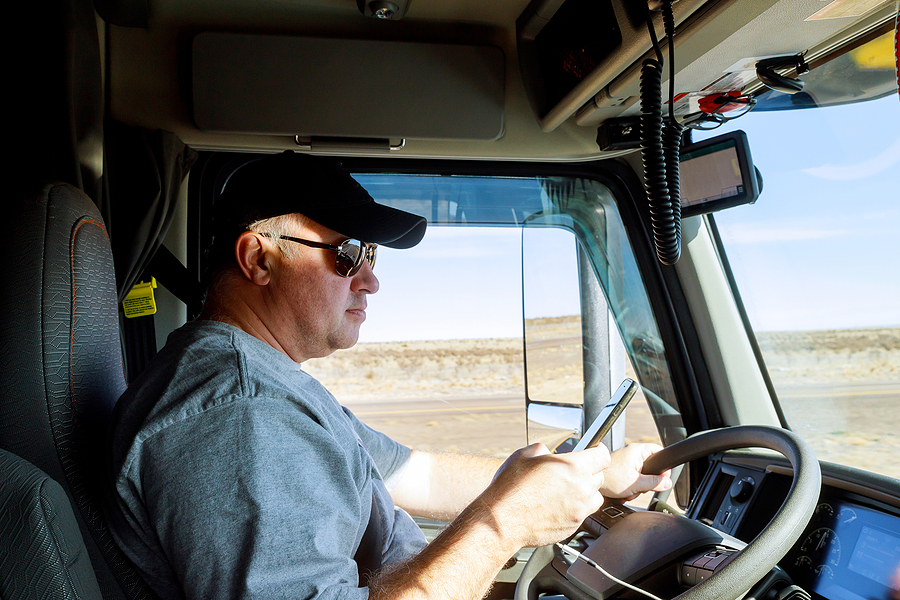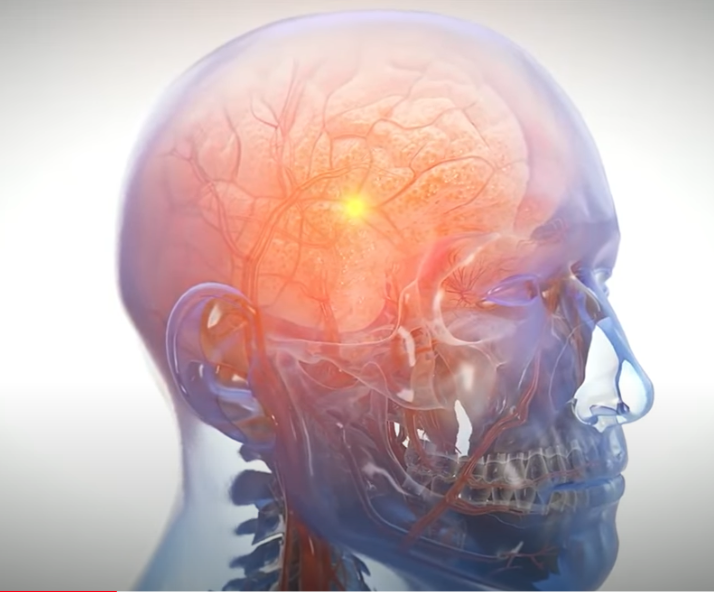 When a tractor-trailer crashes into your car on a San Diego road, you don’t always have the presence of mind to focus on why.
When a tractor-trailer crashes into your car on a San Diego road, you don’t always have the presence of mind to focus on why.
Accidents happen so quickly, injured victims can’t possibly consider all of the potential causes. Police officers, witnesses, vehicle operators, even insurance companies usually accept the usual rationale. The trucker crashed because he was distracted, impaired, speeding, fatigued, or drowsy; many large truck accidents fit into these neat categories, but often causation goes deeper than that.
Truck accidents often cause brutal injuries. Their size, mass, and speed combine to cause unimaginable damage and horrific injuries. When a large truck loses control, private passenger occupants, pedestrians, bicyclists, and motorcyclists become vulnerable targets.
Injured victims often leave an accident scene in an ambulance. They undergo costly medical treatment and rehabilitation. They accumulate high medical bills and lose income due to temporary and permanent impairments. Those with the worst injuries deal with the residual effects of traumatic brain injuries, spinal cord damage, and other life-altering conditions.
Large Truck Accidents
Although truckers don’t frequently cause accidents, when they do crash, they often cause extensive damage. Despite stringent licensing requirements, some bad truck drivers make it through the commercial drivers licensing process.
Others develop bad driving habits long after they’ve qualified to drive a big rig. Federal and state statutes mandate commercial drivers license (CDL) training and testing. Federal regulations require transport companies to monitor drinking and drug use. Despite required training and monitoring, truckers still cause horrific crashes.
The National Highway Transportation Safety Administration (NHTSA) tracks annual trucker accident data.
Their most recent statistics include fatal truck accidents in California:
- Annual fatal accidents involving large trucks: 385
- Total fatalities: 408
- Total trucker fatalities: 56
- Total non-vehicle-occupant fatalities (pedestrians, bicyclists, etc.): 65
These numbers are consistent with nationwide truck accident fatality statistics:
- Total fatal accidents involving large trucks: 5,005
- Large truck occupant fatalities: 892
- Other vehicle occupant fatalities: 3,544
- Non-vehicle occupant fatalities: 569
A truck is considered large when it has a 10,000-pound or more gross vehicle weight rating. A large truck’s weight and mass protect a trucker while giving them a greater capacity to damage smaller vehicles. Statistics consistently show that, in accidents, large truck drivers sustain a lower percentage of fatal injuries than smaller vehicle occupants.
Of the large trucks involved in fatal accidents, most weighed 26,000 pounds or more. At this weight, large trucks enter the “heavy” truck category. Based on California’s Department of Transportation weight standards, 80,000 pounds GVWR is a large/heavy truck’s maximum weight.
The Usual Causes
When a trucker loses control, his large or heavy truck becomes a weapon on wheels. His vehicle easily outweighs a private passenger car or pickup truck. It’s no contest when the two collide at high speeds. As a truck weighs far more than a smaller vehicle, the truck has a clear advantage every time. When police officers document a truck accident scene, they encounter the same factors again and again. Most accidents involve what the NHTSA calls risky driving behaviors.
Drinking and Driving
Only 2 percent of the truckers involved in fatal accidents nationwide had a blood alcohol content at or above the illegal .08 grams per deciliter limit. Considering the potential loss of control and the potential for damage, 2 percent is still excessive.
Any alcohol consumption is unreasonable given its recurrent focus throughout a commercial driver’s training and active career.
- California Vehicle Laws, Div 11, §12, 23152, establish a separate DUI guideline for CDL drivers. A commercial driver is guilty of an alcohol offense when they exceed .04 percent g/dl.
- Federal regulations, Title 49, §382, Controlled Substance and Alcohol Use Testing require that truckers submit to types of alcohol/substance testing: pre-employment, post-accident, random, reasonable suspicion, return-to-work, and follow-up after a suspension.
- Transport companies must monitor drivers for alcohol use and implement appropriate disciplinary and rehabilitation actions.
- When a trucker is guilty of an alcohol-related vehicle crime, they may receive federal and state punishments. Both incorporate a progressive system of penalties that may include a fine, license suspension, incarceration, and CDL license revocation.
Driving While Under the Influence of Drugs
The Federal Motor Carrier Safety Administration’s (FMCSA) national research shows that 6.4 percent of truckers tested positive for at least one drug after a large truck fatal accident. Over 60 percent of involved drivers didn’t undergo drug testing.
The FMCSA requires commercial driver drug testing under the six circumstances described in the above drinking and driving paragraph. Drug tests search for urine metabolites from five different controlled substances: marijuana, cocaine, opiates, amphetamines/methamphetamines, and PCP.
As the National Transportation Safety Board explains, each person responds differently to drugs. Without standardized protocols, they have no way to evaluate how and when a drug impairs a person’s driving abilities.
California statutes address this by making it illegal to drive while under the influence of drugs.
- It’s unlawful for a person to drive if they are addicted to drugs.
- It’s unlawful for any person to drive when they are under the influence of any drug.
- It’s unlawful for a person to drive while under the influence of alcohol and drugs.
Speeding
Speed is high-risk driving behavior, especially for truckers. While speeding, all drivers have the same issues. When a speeder encounters a hazard, it takes longer to stop. Excessive speed makes it more difficult to control a vehicle. It also increases damage from a crash impact and reduces safety equipment effectiveness.
Twenty-six percent of all fatal accidents involved speeding, but nearly half of the documented fatal large truck accidents occurred at 55 miles per hour or below.
- 30 to 35 miles per hour: 2.6 percent
- 40 to 45 miles per hour: 14.1 percent
- 50 to 55 miles per hour: 32.7 percent
- 60 to 65 miles per hour: 20.5 percent
- 70 to 75 miles per hour: 20.1 percent
For large trucks, the combination of speed and weight affects a trucker’s ability to maneuver or stop. A fully loaded large truck requires a stopping distance equal to two football fields. This distance increases when a trucker encounters weather, visibility, or pavement issues.
Distracted Driving
Preventing distracted driving remains a high priority for truckers. Federal guidelines forbid truckers from texting while driving, reading a text, or using a hand-held device while driving. These restrictions have been in place for over a decade, but the distracted driving problem persists.
The NTSB considers all digital devices a major distraction. They have found that even hands-free devices create cognitive distractions.
- State bans on all electronic device usage while driving.
- Greater implementation of distracted driving laws, roadside monitoring, and violation enforcement
- Restrictions on the use of manufacturer-installed “infotainment” systems while driving
- Public and fleet programs to educate drivers about distracted driving.
Drowsy and Fatigued Driving
The NHTSA, NTSB, and other transportation agencies recognize that drowsy drivers cause many large truck accidents. Unfortunately, after an accident, it’s often difficult to prove. For truckers, the problem is connected to lack of quality sleep, driver shortages, and fatigue due to long hours on the road. The FMCSA established hours of service guidelines to prevent these problems.
In the past, truckers avoided hours of service restrictions by submitting inaccurate paper logs. Updated regulations now require that most transport companies install electronic logging devices. These devices track hours of service automatically and require periodic driver certification. Under certain circumstances, a trucker or transport company may edit the electronic data.
Transport companies have the authority to make legitimate changes, but some companies have made inappropriate data alterations. This is a fraudulent act that allows truckers to exceed their legal drive time. This increases their potential for fatigue and drowsy driving accidents. It also covers up legitimate evidence when an accident occurs.
Health Issues
The NTSB determined that the aging trucker population has health and weight issues. Obstructive Sleep Apnea is a common medical problem among truckers. It reduces quality sleep, increases fatigue, and contributes to drowsy driving accidents. Truckers undergo annual medical exams but doctors often miss diagnosing OSA.
Cargo Securement
When a tractor-trailer jackknifes, overturns or skids across a highway, a cargo shift usually initiates the problem. These types of accidents often occur when a truck driver makes a sudden maneuver or an unanticipated stop. When a loading team properly secures the cargo before the trucker leaves to make the delivery, he can usually correct his course without any further complications. Once unsecured cargo begins shifting, the trucker usually loses control of his rig. If the truck overturns onto or slams into a nearby vehicle, it usually causes serious damage and injuries.
The FMCSA developed Cargo Securement rules to avoid these types of accidents. They provide precise methods for securing heavy machinery, vehicles, concrete pipe, and other cargo to prevent shifting that causes accidents.
A Closer Look at Causation
Truckers cause accidents for all of the above reasons, but causation goes much deeper than risky behaviors on the road. It’s been over a decade since the FMCSA conducted its Large Truck Crash Causation study but the research provided insight that remains relevant.
A research team studied 963 crashes involving 1,123 large trucks and 959 smaller vehicles. The accidents studied resulted in 249 fatalities and 1,654 injuries. In reaching their conclusions, they inspected and evaluated accident sites, involved vehicles, and other physical evidence. They also reviewed police reports, medical records, and witness statements. The one-time report documented a series of factors that the FMCSA concluded were common to many truck accidents.
Accident Causation Involves More Than What Happened During the Accident
FMCSA’s research verified that “cause” often included actions that occurred in various timeframes before the accident. Incidents such as a mechanical failure or a driver’s bad decision sometimes immediately precede a crash.
Other causative factors took place during the hours, days, and months before an accident occurred.
- Trucker inexperience
- Inadequate training
- Vehicle defects
- Road conditions: uneven pavement, construction, etc.
- Traffic signs and signals
- Weather conditions: snow, rain, fog
Critical Events, Critical Causes, Associated Factors
The investigative team separated causative factors into three distinct categories.
Critical Events. These critical initial events occur frequently but they don’t always lead to an accident. The research team reviewed reports and evidence to confirm that truckers often take common negligent actions before an accident occurs.
- Left the lane of travel or went off the road
- Lost control due to speed, conditions, cargo shifts, etc.
- Encountered a vehicle in their lane
- Attempted to turn at an intersection
- Attempted to drive through an intersection.
Critical Causes. These human factors often turn critical events into serious accidents.
- Failed to Act: Critical events only become accidents if a trucker fails to take the appropriate action. A failure to act sometimes occurs due to alcohol or drug use, sickness, or other behaviors.
- Failed to Recognize: Drivers don’t always recognize critical events when they are distracted, exhausted, inexperienced, or poorly trained.
- Failed Decision-Making: Some drivers simply fail to properly judge a developing emergency. When a driver misjudges an event, it diminishes his ability to take evasive action.
- Inappropriate Performance: When a trucker is poorly trained, lacks experience, or simply can’t perform the way he should, critical events become serious accidents. Drivers who can’t perform correctly often panic, underreact, overreact, or fail to act.
- Associated Factors: Associated factors are issues such as sudden brake failure, speed, prescription drug use, and many other random factors that contribute to an accident.
Do You Need an Attorney to Handle Your Truck Accident Injury Claim?
Truck accident claims involve complex liability and injury issues. To protect your rights, connect with a truck accident attorney. Attorneys intervene with insurers, responsible parties, and their attorneys. They present your claim and work to produce the best possible settlement.
When you consult a truck accident attorney, you don’t have to commit. You have an opportunity to talk about your truck accident and learn more about your legal options. When you’re ready, you decide if you want to make a claim or file a lawsuit.







